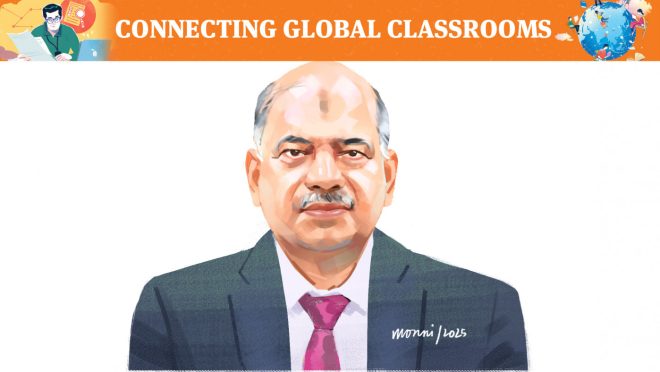Southeast University is preparing graduates for the world
Southeast University is preparing graduates for the world

As a Vice-Chancellor, I am often asked to assess the current state of higher education in Bangladesh. My perspective is shaped by decades of engagement with students, faculty, and industry, and it is candid: our education system, in many ways, has become detached from its true purpose. Education should be a meaningful journey that equips students not only with knowledge but also with the ability to apply that knowledge in real-world contexts. Unfortunately, too often, our institutions emphasise rote memorisation over practical application.
Take, for example, a degree in Computer Science. Too many universities still measure success by a student’s ability to memorise algorithms, definitions, or theoretical concepts rather than their ability to solve real-world problems using programming skills. Similarly, when it comes to English studies, we frequently focus on the memorisation of different types of writing or grammatical rules, without sufficiently emphasising how these skills can be applied in real-life communication scenarios. The truth is that every academic programme should have clearly defined objectives aligned with the demands of the contemporary workplace. The curriculum, assessment methods, and teaching approach should reflect these objectives.
In practical terms, this means that universities must consider the employability of their graduates as a key performance indicator. The number of graduates securing employment in their chosen fields should become a standard metric for ranking and evaluating institutions. By shifting our focus from rote learning to outcomes-oriented education, we can ensure that students leave universities with skills that are relevant and in demand, both locally and internationally.
Equipping students to compete effectively in the global arena is a natural extension of this approach. Hard skills—such as coding, data analysis, engineering competencies, and specialised technical knowledge—are already sought after worldwide. If universities were to introduce globally recognised certifications alongside their degree programmes, it would serve a dual purpose. First, it would encourage universities to raise their standards and ensure that their graduates meet international benchmarks. Second, it would allow students to signal their capabilities to employers globally, giving them a competitive edge in a crowded marketplace. This is not merely aspirational; it is entirely feasible if our institutions are willing to commit to higher standards and greater accountability.
Equally important is the development of soft skills, which are frequently undervalued yet critical for professional success. Hard skills alone are insufficient if graduates cannot communicate effectively, collaborate with colleagues, or present their ideas convincingly. In reality, performance in professional settings is roughly 85% communication and 15% technical skills. Students must therefore be provided with opportunities to develop these competencies through activities such as problem-solving workshops, group discussions, and presentations at student-led conferences. By embedding such exercises into the academic environment, universities can cultivate graduates who are not only technically proficient but also confident, articulate, and capable of thriving in diverse professional settings.
The role of industry in this ecosystem cannot be overstated. Universities cannot operate in isolation if they are to produce employable graduates. Industries must proactively plan their future workforce needs and collaborate closely with relevant universities. One practical method is the development of joint internship programmes, where students can gain hands-on experience while contributing to real projects. Importantly, these internships should be paid, which ensures that both the students and the industry have a vested interest in the success of the programme. Such collaborations create a pipeline of skilled professionals who are ready to meet the demands of the market upon graduation.
At Southeast University, we have adopted a teaching and learning philosophy that is firmly aligned with these principles. Classrooms should be spaces of active engagement, not passive listening. Lectures that encourage students merely to take notes often lead to disengagement and boredom. Instead, we design sessions where students work in small groups or pairs to solve manageable, real-world problems. Each question or challenge is crafted to stimulate critical thinking and creativity, and students are encouraged to utilise the wealth of online resources available to supplement their learning. This approach not only enhances problem-solving abilities but also cultivates independent learning—a skill that is essential in today’s rapidly evolving professional landscape.
Ultimately, the vision of Southeast University is to create a learning environment where knowledge is actively exchanged, skills are developed for practical application, and students graduate not just with degrees, but with the confidence, competence, and adaptability to succeed anywhere in the world. Education, in its truest sense, should prepare young people for life, not just exams. By focusing on meaningful learning outcomes, integrating global standards, fostering soft skills, and collaborating with industry, we can ensure that our graduates are equipped to thrive in the 21st century.
Prof Yusuf Mahbubul Islam PhD, Vice-Chancellor of Southeast University


